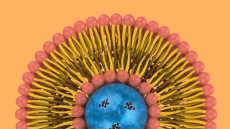Vitamin D impacts HIV drug intervention, says study

According to the National Health and Nutrition Examination Survey (NHANES), 79% of the elderly adult population has vitamin D deficiency or insufficiency.
Vitamin D is actually a pro-hormone which modulates the expression of many genes through its receptor (vitamin D receptor, VDR); particularly, it has an impact on the expression of gene-encoding transporters and enzymes responsible for drug transport and metabolism, such as CYPs.
Several drugs are metabolised by CYP3A4, and consequently vitamin D may alter the toxicity or efficacy of CYP3A4-metabolised drugs such as the anti-HIV drug Efavirenz (EFV). Also, these drugs may affect vitamin D metabolism and status.
According to the authors of the current study, no previous studies had provided data on the association between vitamin D levels, seasonality, and EFV plasma levels. For this reason, the aim of the current study was to evaluate the effect of 25-hydroxy vitamin D (25(OH)D3) levels on EFV plasma concentrations in different seasons.
The study
A total of 316 HIV patients were enrolled from the regions of Turin and Rome, in Italy. The team quantified 25(OH)D3 using chemiluminescence immunoassay and EFV plasma concentrations were quantified with the HPLC–PDA method.
Overall, the data revealed 25(OH)D3 levels were inversely correlated with EFV concentrations and some patients with EFV levels higher than 4,000 ng/mL showed a deficient 25(OH)D3 concentration.
Concerning seasonality, EFV concentrations were associated with 25(OH)D3 deficiency only in winter and in spring, whereas a significant influence was highlighted for 25(OH)D3 stratification for deficient, insufficient and sufficient values in winter, spring and summer.
The authors conclude this data suggests that vitamin D is able to affect drug exposure in different seasons; thus, the achievement of the clinical outcome could be improved by also considering concentrations of this pro-hormone.
"This is the first study reporting vitamin D influence on EFV concentrations in two Italian cohorts of HIV-affected patients; particularly, 25(OH)D3 deficiency (≤10 ng/mL) was associated with higher EFV exposure, with a potential risk of adverse effects."
The authors say other studies are mandatory in order to better define the role of vitamin D metabolic effects on drugs and their toxicity and to evaluate the possible clinical impact of these findings.
Source: Nutrients
Cusato, J.; Tempestilli, M.; Calcagno, A.; Vergori, A.; Piselli, P.; Antonucci, M.; Avataneo, V.; Palermiti, A.; Notari, S.; Antinori, A.; Di Perri, G.; Agrati, C.; D’Avolio, A.
"Vitamin D as Modulator of Drug Concentrations: A Study on Two Italian Cohorts of People Living with HIV Administered with Efavirenz"













